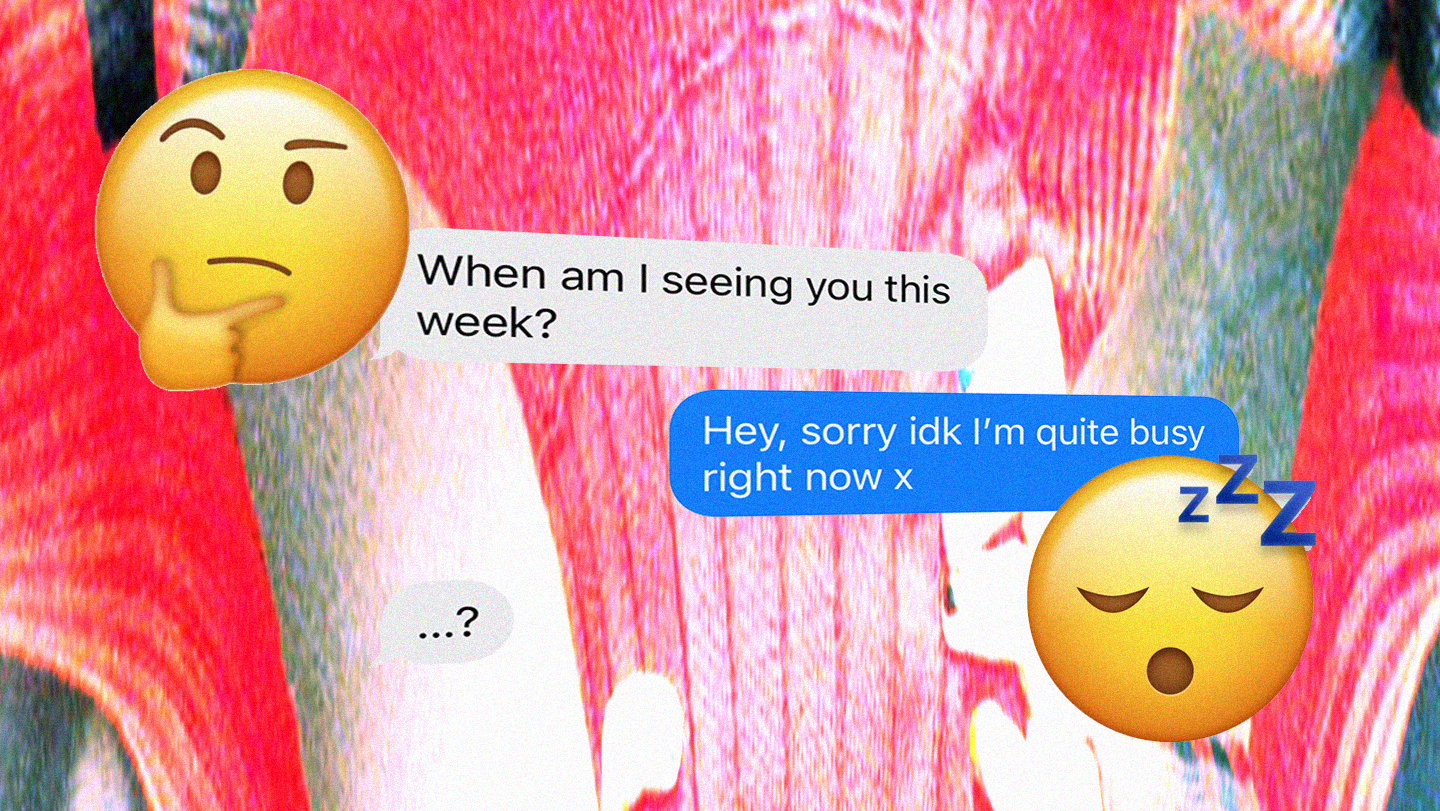If you’ve gone on TikTok even one single time over the past few months, it’s inevitable that you’ve seen creators renaming and redefining doing the bare minimum required in your job as “quiet quitting”. The now ubiquitous term immediately went viral, inspiring conversations around work “not being your life” and even being “quiet fired”. While the phrase is new, the concept of doing very little at your office job is age-old. It also comes as little surprise that it appeals to Gen Z’s increasingly anti-work workforce. But does the now-buzzword also apply to modern relationships? Daniel Hentschel, a 26-year-old TikTok creator, seems to think so, and has come up with the latest variation on the phrase — “quiet dumping”.
Daniel, who’s based in Los Angeles, posted a satirical video about “quiet quitting” relationships last month. While all of his videos are both extremely sarcastic and comedic gold (including how to hack your partner into trusting you or trick yourself into loving yourself) Daniel’s “quiet dumping” commentary struck a nerve with his 261K followers. “This video was funny because everybody was like, ‘this is the first video you’ve posted that’s not a joke, are you okay?’” he said, despite thinking it was a joke himself when he posted it. In the TikTok, Daniel categorizes quiet dumping as showing up in a relationship but not “really showing up”.
After accidentally starting an honest conversation about a painful dating experience, Daniel realized he’s been on both sides of the quiet dumping spectrum. “I think that’s how most relationships end honestly,” he says. “Usually, the person doing the dumping decides to do it earlier than the actual confrontation happens, so they do the grieving earlier and it leads to an imbalance.” In the video, Daniel also touches on the gaslighting that can come after confronting a partner that you can feel has emotionally checked out.
It was, he says, inspired by all the recent discourse around quiet quitting. “It’s that classic conversation, ‘what are we?’ But with your boss,” Daniel explains. “The quiet quitting stuff really is so insidious because it’s kind of like being upset that a stripper isn’t actually in love with you. Bosses got so hurt by the idea that their employees don’t actually show up for work because they love being there that they had to invent a term for it to make it sound like it’s our fault”.
Just like quiet quitting is an understandable and expected part of plugging into a nine-to-five, quiet dumping is often the product of its environment. As young people navigate a dating climate that’s full of “commitment phobia, apathy and conflict aversion”, many people are opting out of relationships altogether in favor of situationships (where it’s more acceptable to pull a slow fade). Unlike quiet quitting at large corporations, however, we do owe our romantic partners open communication and care.
Alexandra, a 25-year-old social media consultant based in Berlin, says she used the quiet dumping method to break up with her ex when “things were not going well”, but she couldn’t come up with specific reason why. “I was just falling out of love, without an explanation,” she said. “Since I wasn’t able to articulate my reasons I believed (at the time) that it would be kinder to do a slow fade”. Alexandra said she felt firsthand how this would have impacted her ex when another partner quiet dumped her years later. “It’s the worst feeling ever because you still think you can fix things even though they have secretly given up,” she says.
In hindsight, Alexandra believes quiet dumping is the “worst way to break up with someone”. “I honestly only realized this after I experienced it myself,” she said. “I always knew it was wrong but I think it came from a place of fear, anxiety, guilt and not being able to communicate one’s own feelings.” Since telling someone you’ve fallen out of love with them is a hard but necessary conversation (sparing them weeks or months of confusion), Daniel recommends that people doing quiet dumping instead “just dump them and get it over with”.
If you suspect you’re experiencing a slow and painful relationship death at the hands of a quiet dumper, Daniel also has advice on how to speed up the process. “Most people are quiet dumping because they’re avoiding confronting you or the reality that they want to break up with you,” he says. “So my best advice would be to become more annoying and push them over the edge so they finally just do it.” Whatever happens, it’s clear quiet quitting should be left for the workplace and we should be cultivating clear communication in our relationships instead.

